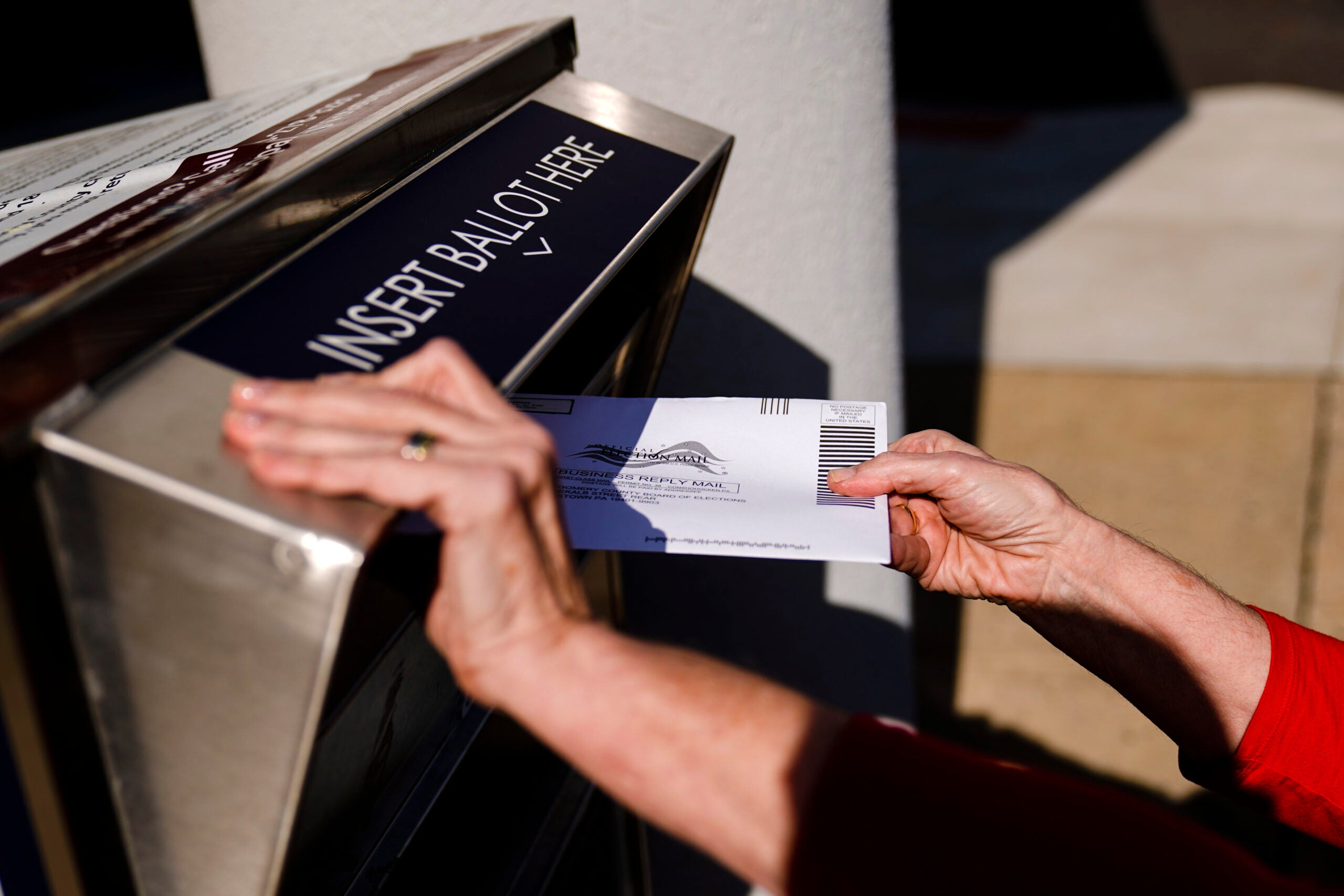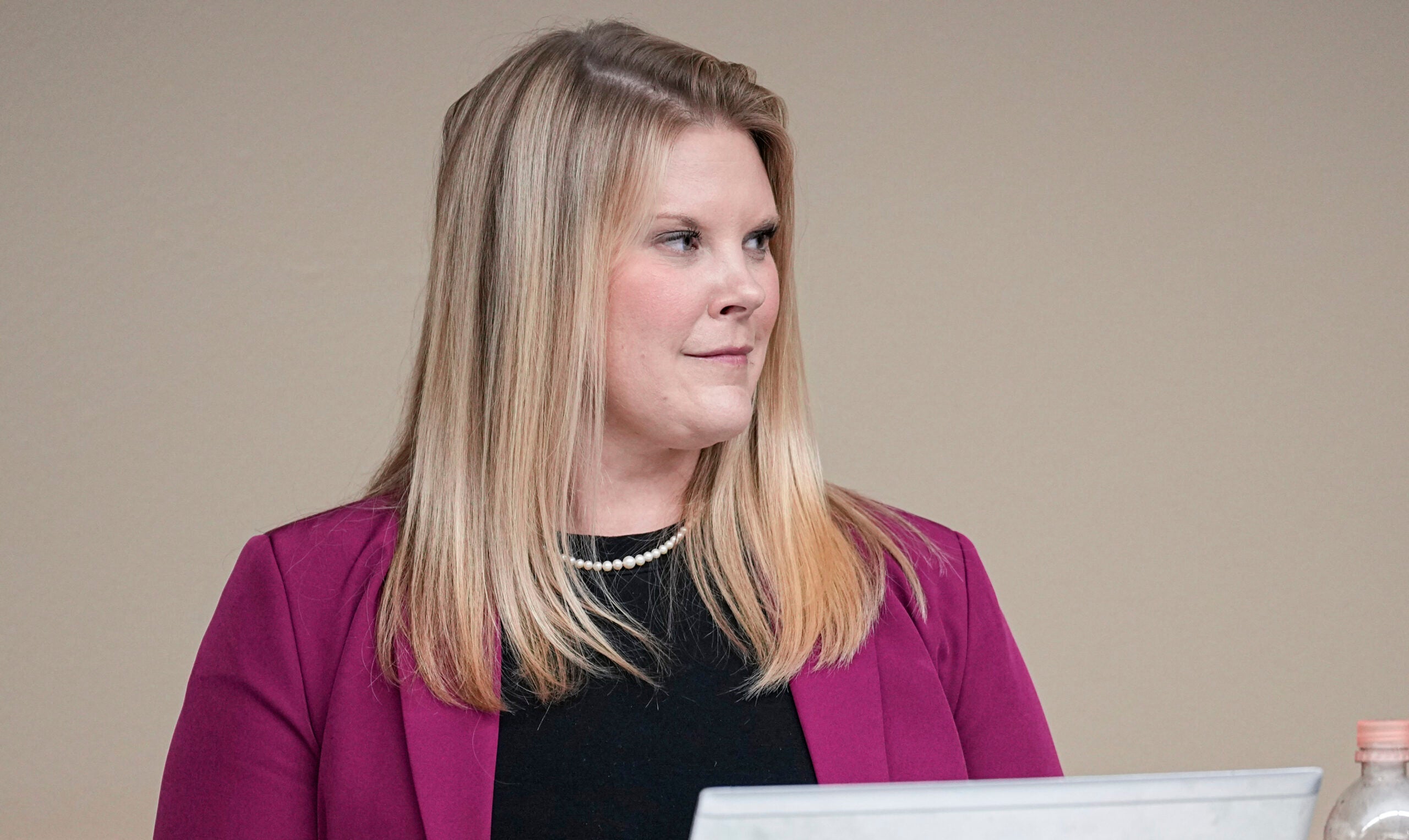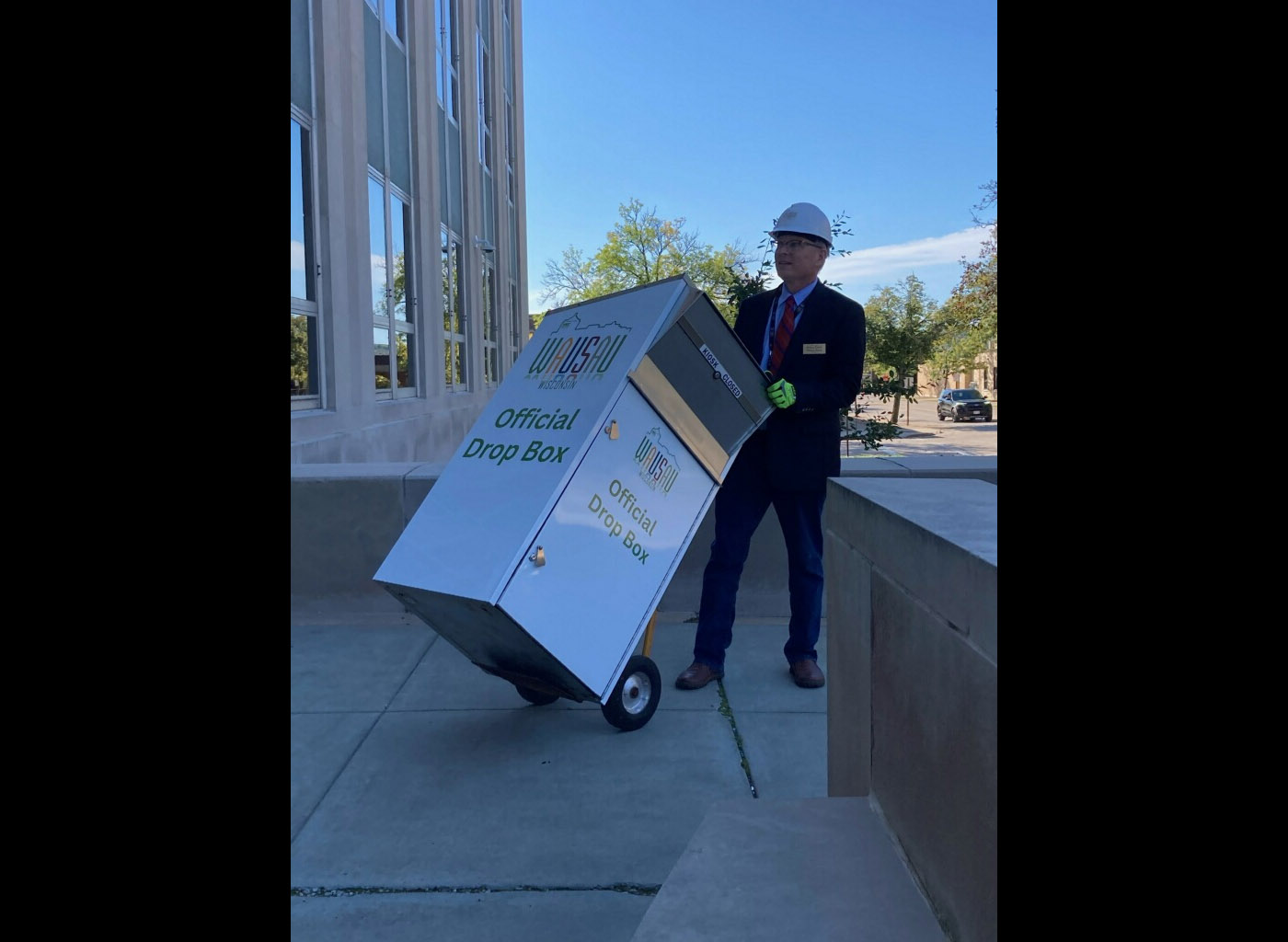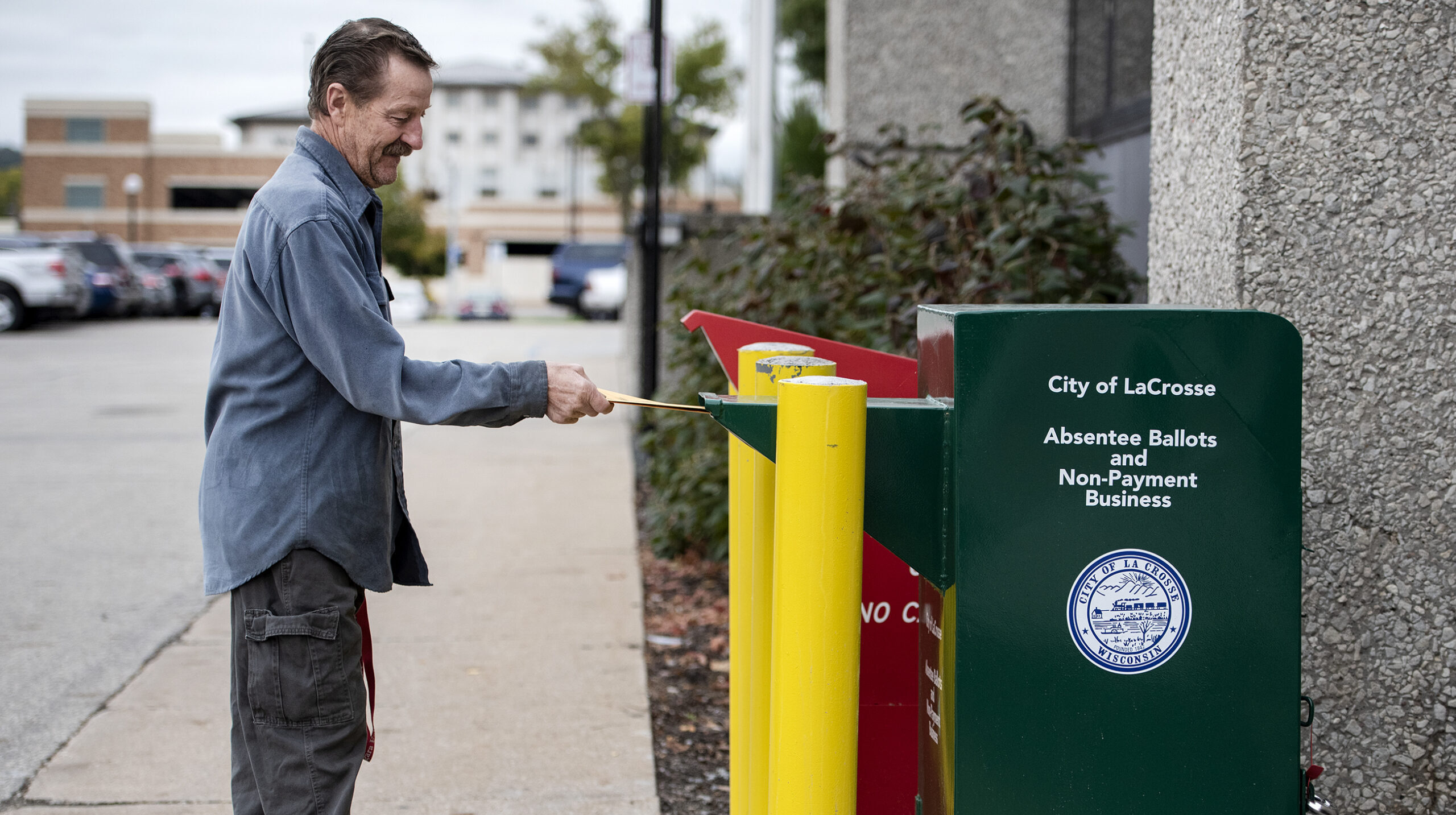Absentee ballot drop boxes will continue to be allowed in Wisconsin for the state’s Feb. 15 primary following a ruling Friday night by the Wisconsin Supreme Court.
Justices also agreed to hear an expedited appeal of the case, meaning they’re likely to decide sooner rather than later whether drop boxes will be allowed for the state’s higher-turnout elections in August and November.
The state Supreme Court was asked to weigh in on drop boxes following a flurry of lower court rulings this month put their future in doubt.
Stay informed on the latest news
Sign up for WPR’s email newsletter.
On Jan. 10, Waukesha County Circuit Court Judge Michael Bohren sided with the conservative Wisconsin Institute for Law and Liberty, or WILL, ruling that absentee ballot drop boxes were not allowed under state law. He later rejected a request to stay, or temporarily pause his order, ruling that “the law is clear” on drop boxes.
A coalition of groups including Disability Rights Wisconsin, the League of Women Voters of Wisconsin and Wisconsin Faith Voices for Justice appealed, arguing in part that the ruling had “created a mess” because it was handed down too close to Wisconsin’s Feb. 15 spring primary. A unanimous state appeals court agreed, issuing a stay of Bohren’s ruling that would keep drop boxes in use, at least in February.
WILL appealed that ruling to the state Supreme Court, and while justices didn’t issue a final decision in the case, a majority ruled that it was too close to the Feb. 15 primary to change the rules for voting by banning drop boxes.
While the majority opinion was unsigned, it was supported by liberal Justices Ann Walsh Bradley, Rebecca Dallet and Jill Karofsky, and concurred in by conservative swing Justice Brian Hagedorn.
Hagedorn wrote separately to explain that regardless of the merits of the case, it was too close to an election to change the rules for voting.
“Whether the circuit court’s decision to deny a stay constituted an erroneous exercise of discretion or not, further judicial relief would be inappropriate at this time,” Hagedorn wrote. “As a general rule, this court should not muddy the waters during an ongoing election.”
Conservative Justice Rebecca Bradley dissented in part, using her opinion to admonish Hagedorn. She argued the state Supreme Court was wrong to let drop boxes be used in the February primary.
“Astonishingly, Justice Hagedorn says it doesn’t matter whether the circuit court properly denied a stay of its order or not; apparently, once again, it’s simply too close to the election to undo the court of appeals’ mistake,” Bradley wrote. “In Wisconsin, there is always an impending election.”
Bradley’s dissent was joined by conservative Justices Annette Ziegler and Patience Roggensack.
The court laid out a briefing schedule that could take up to 50 days to complete. It’s unclear how that might affect the use of drop boxes in Wisconsin’s April election.
Wisconsin Elections Commission deadlocks on changing drop box policy
Earlier Friday, the Wisconsin Elections Commission repeatedly deadlocked on questions dealing with drop boxes, with Democratic commissioners saying it was unwise to vote on the issue while the court case was proceeding.
The lack of consensus effectively means the Elections Commission won’t change its guidance allowing the use of drop boxes despite an order from Republican state lawmakers to do just that.
It also means the agency’s policy will effectively stay put while the case — now before the Wisconsin Supreme Court — unfolds.
“We did everything we could,” said Wisconsin Elections Commission member Mark Thomsen, following multiple failed votes on the issue. “It’s up to the courts now.”
Friday’s meeting was called to respond to a letter sent earlier this month by the Republican co-chairs of the Legislature’s Joint Committee for the Review of Administrative Rules. One of the co-chairs, state Sen. Steve Nass, R-Whitewater, is an outspoken opponent of drop boxes.
The letter stated that lawmakers believed, based on the finding of a nonpartisan audit, that the Elections Commission’s guidance on drop boxes was broad enough that it should have been written as an administrative rule. That’s significant because the Legislature oversees the rulemaking process, which gives them the power to block rules they don’t like.
The letter ordered the Elections Commission to either stop issuing its guidance or reframe it as an “emergency rule,” sending it to the Republican committee by Feb. 9.
But on Friday, the Elections Commission, which is split 3-3 between Republican and Democratic appointees, repeatedly deadlocked on how to proceed. The failed votes mean that for the time being nothing will happen.
Thomsen, one of the Democratic appointees, argued it was foolish to change anything about the state’s drop box policy with the drop box lawsuit working its way through the court system.
“We need that case,” Thomsen said. “It’s teed up right there. And I don’t think we should change anything and risk upsetting that whole process.”
Dean Knudson, one of the Republican appointees to the Elections Commission, said Friday he agreed with the Waukesha County Circuit Court judge’s decision striking down the drop box guidance even though Knudson supported the policy in 2020.
“We were in a position of having to try to enforce and administer a very unclear law at a time when people were frankly scared during the pandemic,” Knudson said. “That nervousness of the pandemic is largely over, I think.”
After the Elections Commission meeting, Nass issued a statement criticizing Democratic members of the panel. Nass said once the Legislature’s Feb. 9 deadline passed, it should file its own lawsuit against the Wisconsin Elections Commission.
Wisconsin Public Radio, © Copyright 2025, Board of Regents of the University of Wisconsin System and Wisconsin Educational Communications Board.





